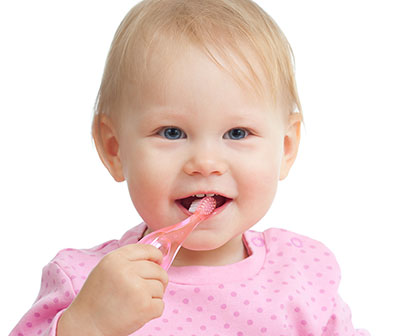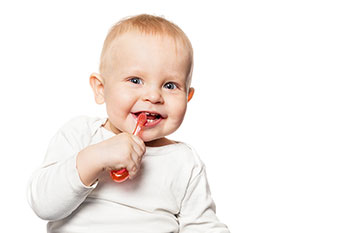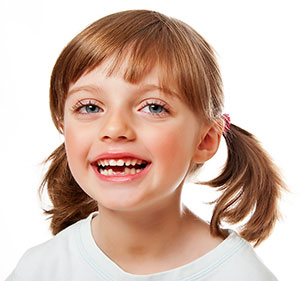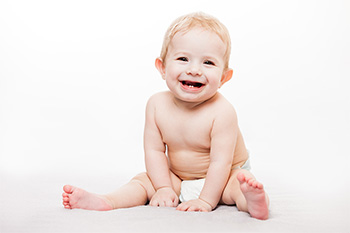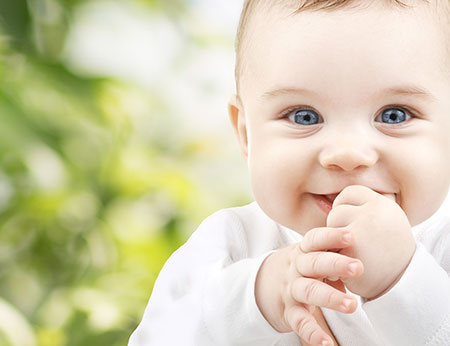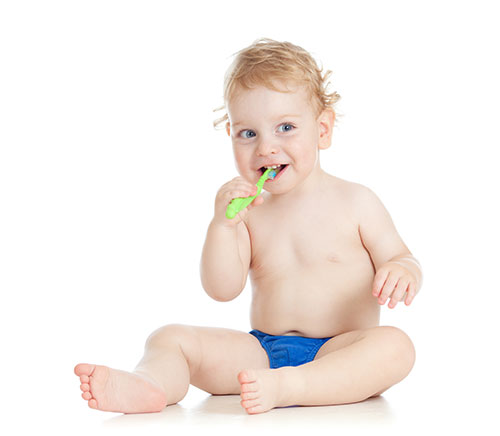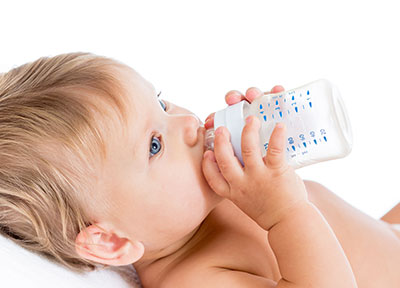
Every baby will require nursing or formula feeding with a bottle during the first years. Whether nursing or formula feeding, there are potential oral health implications for your baby if adequate oral care is not maintained. Your baby will get their first teeth around the age of five to ten months. Be on the lookout for teething symptoms and bumps in the gums, usually lower front. Your baby will continue teething until around the age of 2 and a half years old, when a complete set of 20 teeth should have erupted. If not cared for, breast milk and formula can cause cavities or dental decay on teeth.

